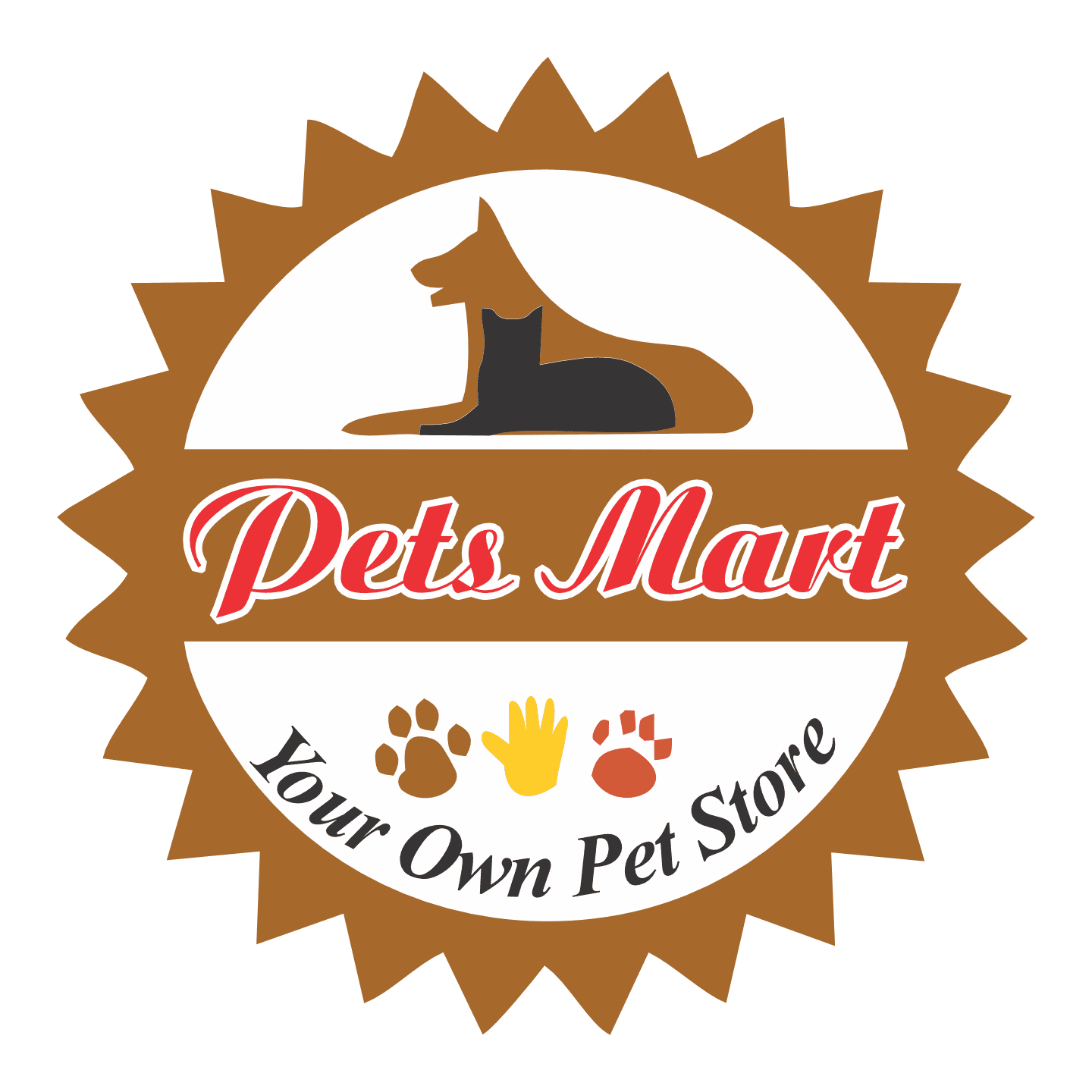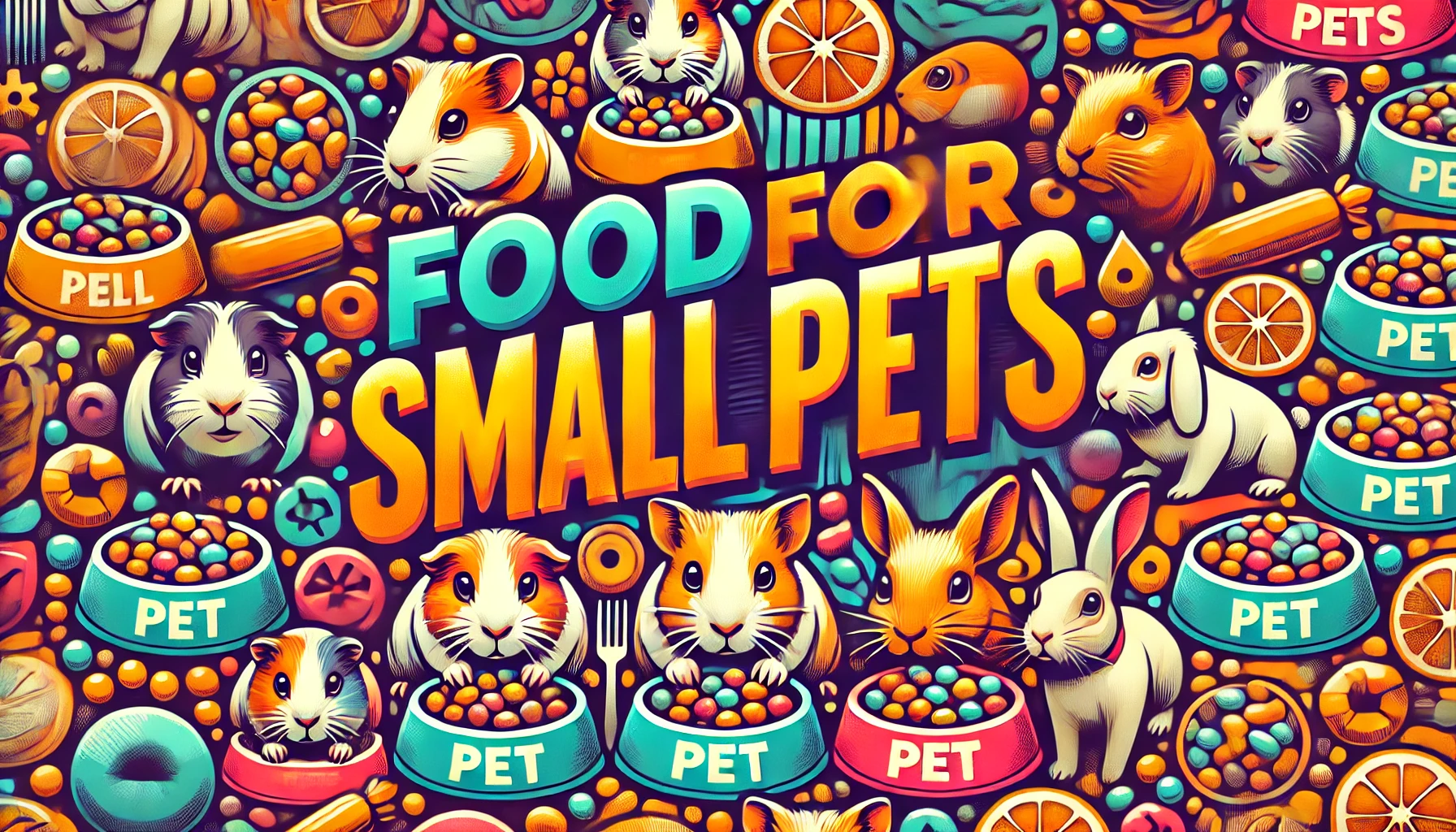At Pet Mart, we know that small pets, whether they’re rabbits, guinea pigs, hamsters, or ferrets, have unique dietary needs that must be met to ensure their health and well-being. Providing the right food for small pets is essential for their growth, energy, and overall happiness. In this comprehensive guide, we’ll delve into everything you need to know about choosing the best food for your small pets, focusing on high-quality ingredients and balanced diets that cater to their specific needs.
Why Choosing the Right Food for Small Pets Matters
Small pets, despite their size, have big nutritional requirements. The food you provide is crucial for their longevity, vitality, and overall health. Proper nutrition affects everything from their digestive health to their coat quality and immune system. Here’s why selecting the right food for small pets is so important:
1. Supports Growth and Development
Young small pets need diets rich in essential nutrients to support their rapid growth. For example, baby rabbits (kits) require food that is high in protein and calcium to ensure proper bone development.
2. Promotes Digestive Health
Small animals, such as guinea pigs and rabbits, have sensitive digestive systems that require specific types of fiber to function properly. Feeding them the right food helps prevent digestive issues like bloating and diarrhea.
3. Maintains Healthy Weight
Obesity is a common issue in small pets, especially in animals like guinea pigs and hamsters. Feeding them a balanced diet with the correct portion sizes helps maintain a healthy weight, reducing the risk of related health problems.
4. Enhances Coat and Skin Health
The right balance of nutrients, particularly those rich in omega fatty acids, can lead to a shiny, healthy coat and prevent skin problems.
5. Boosts Immune System
A diet rich in vitamins, minerals, and antioxidants helps strengthen your small pet’s immune system, protecting them from common illnesses and infections.
Types of Food for Small Pets Available at Pet Mart
At Pet Mart, we offer a wide range of food for small pets to cater to the specific dietary needs of various animals. Let’s explore the different types of food available for your tiny companions:
1. Pellets
Pellets are a staple in the diet of many small pets, including rabbits, guinea pigs, and chinchillas. These are specially formulated to provide balanced nutrition and prevent selective feeding, where pets might only eat the tastiest parts of their food mix.
Benefits of Pellets:
- Ensures a balanced intake of essential nutrients
- Reduces the risk of selective feeding
- Available in species-specific formulations
Considerations:
- Should be complemented with fresh hay and vegetables for a complete diet
2. Hay
Hay is an essential part of the diet for herbivorous small pets, particularly rabbits and guinea pigs. It provides necessary fiber that aids in digestion and helps wear down their constantly growing teeth.
Benefits of Hay:
- High in fiber, supporting digestive health
- Helps maintain dental health by wearing down teeth
- Encourages natural foraging behavior
Considerations:
- Should be available at all times, as it is a primary food source for many small pets
3. Vegetables and Fruits
Fresh vegetables and fruits are crucial for providing vitamins and minerals that pellets and hay alone cannot offer. Leafy greens, such as kale and spinach, are particularly beneficial for small pets like rabbits and guinea pigs.
Benefits of Vegetables and Fruits:
- Rich in essential vitamins and minerals
- Adds variety to the diet, making mealtime more enjoyable
- Supports overall health and well-being
Considerations:
- Should be fed in moderation to avoid digestive upset
- Avoid toxic foods like onions, garlic, and citrus fruits
4. Seeds and Nuts
Seeds and nuts are often included in the diet of small pets like hamsters and gerbils. They are high in fat and provide a good source of energy, but should be fed in moderation to prevent obesity.
Benefits of Seeds and Nuts:
- High in healthy fats and energy
- Encourages natural foraging and hoarding behaviors
- Adds texture and variety to the diet
Considerations:
- Should be given as treats or in small quantities due to their high-fat content
- Avoid feeding too many sunflower seeds, as they are particularly fatty
5. Specialized Diets
Some small pets, such as ferrets, require specialized diets due to their unique nutritional needs. Ferrets, for example, are obligate carnivores and require a diet high in animal protein and fat.
Benefits of Specialized Diets:
- Tailored to meet the specific nutritional needs of certain species
- Helps prevent diet-related health issues
- Often recommended by veterinarians for pets with specific dietary requirements
Considerations:
- May be more expensive than standard pet food
- Should be chosen based on veterinary advice
Key Ingredients to Look for in Food for Small Pets
When selecting food for small pets, it’s important to focus on high-quality ingredients that meet their nutritional needs. Here are some of the key ingredients you should look for:
1. High-Quality Protein
Protein is essential for growth, tissue repair, and overall health. Look for foods that include high-quality sources of protein, such as alfalfa (for young herbivores) or meat-based proteins (for carnivorous pets like ferrets).
2. Fiber
Fiber is crucial for the digestive health of small pets, particularly for herbivores like rabbits and guinea pigs. Timothy hay and other grass hays are excellent sources of fiber.
3. Vitamins and Minerals
Vitamins and minerals, including Vitamin C (especially important for guinea pigs), Vitamin A, calcium, and phosphorus, support a range of bodily functions, from bone health to immune support.
4. Healthy Fats
Healthy fats, such as omega-3 and omega-6 fatty acids, support skin and coat health and provide a concentrated source of energy. These fats are often found in seeds, nuts, and fish oils.
5. Natural Ingredients
Natural, whole ingredients are always preferable over artificial additives. Look for foods that list whole grains, fresh vegetables, and natural flavorings rather than artificial colors, preservatives, or flavors.
How to Choose the Right Food for Your Small Pet
Selecting the right food for small pets depends on several factors, including the type of pet you have, their age, and any specific health conditions. Here’s a guide to help you choose the best food for your tiny companions:
1. Know Your Pet’s Dietary Needs
Different small pets have different dietary requirements. For example:
- Rabbits and Guinea Pigs: Require a diet high in fiber, with a combination of hay, pellets, and fresh vegetables.
- Hamsters and Gerbils: Need a balanced diet that includes seeds, nuts, grains, and small amounts of fruits and vegetables.
- Ferrets: As obligate carnivores, they require a high-protein, high-fat diet with minimal carbohydrates.
Understanding your pet’s specific dietary needs is the first step in choosing the right food.
2. Consider Your Pet’s Age and Health
Young, growing pets often need more protein and calcium than adult or senior pets. Similarly, pets with specific health conditions, such as obesity or dental issues, may require specialized diets. Always choose food that is appropriate for your pet’s life stage and health status.
3. Read the Ingredients List
When buying food for small pets, always check the ingredients list. The first ingredient should be a high-quality source of protein or fiber, depending on your pet’s dietary needs. Avoid foods with excessive fillers, artificial additives, or low-quality by-products.
4. Consult Your Veterinarian
If you’re unsure about what to feed your small pet, consult your veterinarian. They can provide recommendations based on your pet’s specific needs and help you choose the best diet for their health and well-being.
5. Introduce New Foods Gradually
When introducing new food to your small pet’s diet, do so gradually to avoid digestive upset. Start by mixing a small amount of the new food with their current diet, gradually increasing the proportion over a week or two.
Common Myths About Food for Small Pets
There are several misconceptions about what constitutes a healthy diet for small pets. Here, we debunk some of the most common myths:
1. Myth: All Small Pets Can Eat the Same Food
Different species of small pets have vastly different dietary requirements. For example, feeding a rabbit a diet high in seeds and nuts can lead to obesity and digestive issues. Always choose species-specific food for your small pet.
2. Myth: Fresh Fruits and Vegetables Can Replace Pellets
While fresh fruits and vegetables are an important part of many small pets’ diets, they should not replace pellets, which are formulated to provide balanced nutrition. Use fresh produce as a supplement, not a substitute.
3. Myth: Treats Should Be a Regular Part of the Diet
While treats can be a great way to bond with your pet, they should be given in moderation. Overfeeding treats, especially those high in sugar or fat, can lead to obesity and other health issues.
4. Myth: All Hay Is the Same
Not all hay is created equal. Timothy hay is generally the best choice for adult rabbits and guinea pigs due to its high fiber content. Alfalfa hay is richer in protein and calcium and is better suited for young or pregnant animals.
FAQs About Food for Small Pets
1. What is the best food for my small pets?
The best food for small pets depends on their species, age, and health. For rabbits and guinea pigs, a diet high in hay and supplemented with pellets and fresh vegetables is ideal. For hamsters and gerbils, a balanced mix of seeds, grains, and small amounts of fresh produce works well. For ferrets, a high-protein, meat-based diet is necessary.
2. How often should I feed my small pets?
Feeding frequency varies by species. Herbivores like rabbits and guinea pigs should have constant access to hay and be fed pellets and vegetables once or twice a day. Carnivores like ferrets typically eat small meals multiple times a day.
3. Can I feed my small pet human food?
While some human foods are safe for small pets, many are not. Always research before offering human food to your pet, and avoid foods like chocolate, caffeine, alcohol, and anything toxic to animals.
4. How can I tell if my small pet has a food allergy?
Signs of a food allergy in small pets include itching, skin irritation, digestive issues, and respiratory problems. If you suspect your pet has a food allergy, consult your veterinarian for advice on changing their diet.
5. Is it necessary to provide supplements to my small pet?
In most cases, a balanced diet will provide all the nutrients your small pet needs. However, some pets, like guinea pigs, may require vitamin C supplements. Always consult your vet before adding supplements to your pet’s diet.
Conclusion
Choosing the right food for small pets is essential to ensuring their health, happiness, and longevity. At Pet Mart, we offer a wide range of high-quality, species-specific foods to meet the unique dietary needs of your tiny companions. Whether you’re feeding a rabbit, guinea pig, hamster, or ferret, providing them with the right nutrition will help them thrive.
Visit Pet Mart today to explore our selection of premium small pet food and give your little friends the best start in life!

